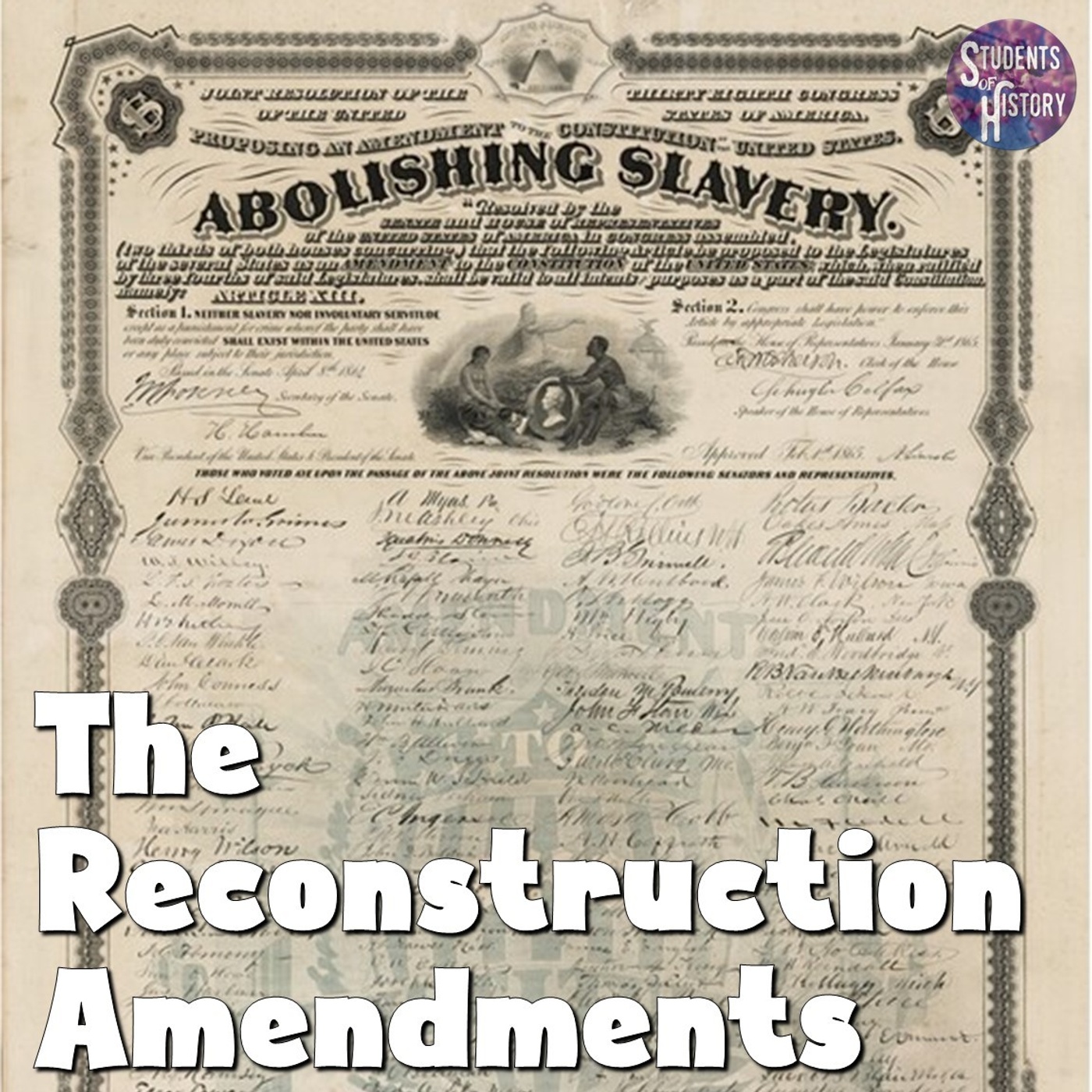The Reconstruction Amendments

Between 1865 and 1870, three amendments to the Constitution were ratified, which would become known as the Reconstruction Amendments. Numerically, they are the 13th, 14th, and 15th Amendments. They had major ramifications for the country and especially for formerly enslaved African Americans.
The amendments and other legislation from this period is credited to the work of Radical Republicans in Congress. They called themselves "Radical" because of their goal of ending slavery and guaranteeing civil rights for African Americans. Moderate Republicans, including President Abraham Lincoln before his assassination, and members of the Democratic Party did not fully support the same goals. This led to conflict during and after the Civil War.
President Abraham Lincoln's Emancipation Proclamation declared that enslaved people in the South were free on January 1, 1863. Republicans in Congress, however, wanted to safeguard against slavery ever coming back. To ensure that the abolition of slavery was guaranteed, an amendment to the Constitution was initiated.

The 13th Amendment abolished slavery and involuntary servitude, except as punishment for a crime. It passed Congress on January 31, 1865, a few months before President Lincoln was assassinated. Northern states quickly ratified it along with several border states. Lincoln's successor, Andrew Johnson, then encouraged Alabama, North Carolina, and Georgia to ratify as well, so that it could reach the necessary 27 of 36 states on December 6, 1865. The 13th Amendment is remembered as the one which formally ended slavery in the United States; however, there is an important section of it that is frequently overlooked.
The Amendment states that neither slavery nor indentured servitude shall exist “except as punishment for a crime” for which the individual has been convicted. This allowed for slave-like treatment of people in prison. During the Reconstruction Era, Southern states would arrest Black people for vague crimes like “malicious mischief” and send them to prison. Then, “convict-leasing” allowed plantation owners to lease prisoners to work for them. This has been called "slavery by another name" and is controversial to this day.
The 14th Amendment, which was ratified on July 28, 1868, defined an American "citizen" as any person born in the United States. This effectively overturned the infamous Dred Scott decision of 1857. It also stated that no citizen could be denied equal protection under the law. This Equal Protection Clause is one of the most important aspects in all of American government. It mandates that individuals in similar situations be treated equally by the law.
The 14th Amendment was bitterly contested, particularly by the states of the defeated Confederacy, which were forced to ratify it in order to regain representation in Congress. It was first sent to states in June 1866 and it took a full 2 years before enough states ratified the amendment to become law.
Finally, the 15th Amendment guaranteed Black men the right to vote. The actual language of the amendment said that no man could be denied his voting privileges “on account of race, color, or previous condition of servitude”. The amendment passed in Congress in February 1869, and again there was a difficult fight for ratification. Eventually, enough states formally ratified the Amendment and it became part of the Constitution on March 30, 1870. This provided millions of formerly enslaved men the opportunity to finally participate politically in the United States.